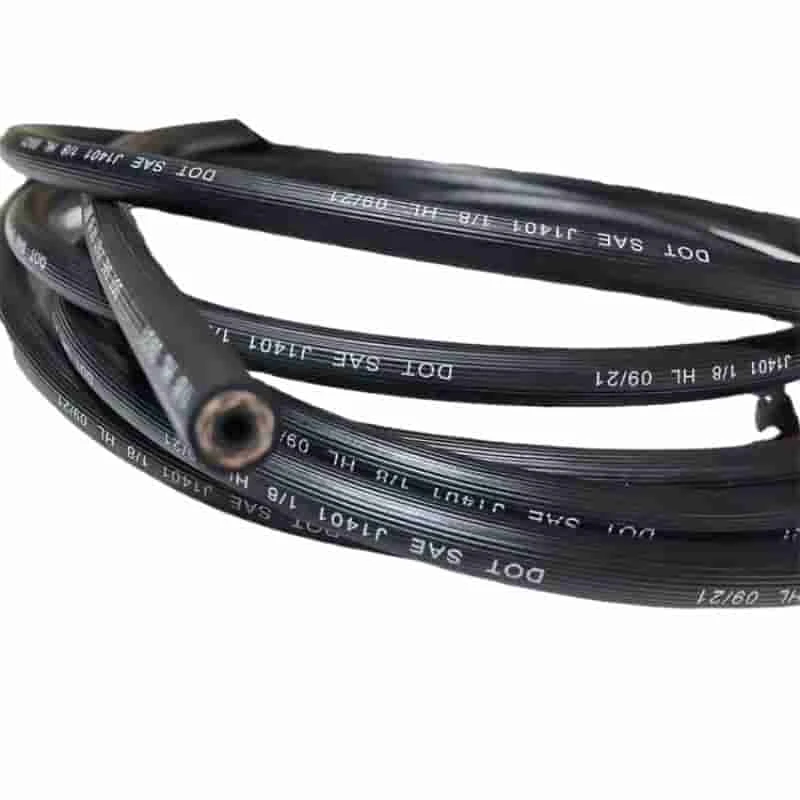Understanding the Importance of Oil Coolant Lines in Engine Performance and Maintenance
Dec . 03, 2024 17:04 Back to list
Understanding the Importance of Oil Coolant Lines in Engine Performance and Maintenance
The Importance of Oil Coolant Lines in Engine Performance
In modern automotive engineering, maintaining optimal engine temperature is critical for performance and longevity. One essential component of this system is the oil coolant line. This article explores the role and significance of oil coolant lines in ensuring efficient engine operation.
What are Oil Coolant Lines?
Oil coolant lines are tubes or hoses that circulate oil and coolant throughout an engine. Their primary function is to transfer heat away from the engine components to prevent overheating. During combustion, engines generate a substantial amount of heat that can quickly rise to dangerous levels if not regulated. Oil coolant lines help manage this heat by facilitating the flow of oil, which absorbs excess heat and passes it to the coolant system for dissipation.
Functionality of Oil Coolant Lines
The fundamental principle behind oil coolant lines is the transfer of thermal energy. When the engine runs, oil circulates through the oil cooler, where it absorbs heat. The heated oil then passes through the oil coolant lines, venting heat into the engine’s cooling system. This cooling system, typically consisting of a radiator, then disperses the heat into the surrounding air.
Oil coolant lines can vary in design based on the engine's layout and intended use, whether in passenger vehicles, heavy machinery, or performance-oriented applications. Their construction materials also play a crucial role; they must withstand high temperatures and pressures and resist corrosion and wear.
Key Benefits of Oil Coolant Lines
1. Enhanced Engine Performance Properly functioning oil coolant lines help maintain optimal oil temperatures, which contribute to smoother engine operation, improved fuel efficiency, and increased power output. Heated oil maintains better viscosity, which is vital for lubrication, reducing friction, and wear on engine parts.
oil coolant line

2. Extended Engine Life By preventing overheating, oil coolant lines significantly reduce the risk of engine failure. Over time, excessive heat can lead to various mechanical issues, including warped components, blown gaskets, and even complete engine failure. With efficient cooling, the lifespan of critical engine parts is extended, leading to lower maintenance costs and increased reliability.
3. Environmental Impact Engines that run at optimal temperatures produce fewer emissions and consume less fuel. Efficient oil cooling can lead to reduced exhaust emissions, aligning with increasing environmental regulations and standards.
4. Support for High-Performance Engines In high-performance or racing applications, oil coolant lines are critical. These engines produce significant heat during operation, and the demanding nature of high-speed driving requires exceptional cooling capabilities. Upgraded oil coolant lines, designed to handle higher capacities and temperatures, are often a staple in performance modifications.
Common Issues with Oil Coolant Lines
Like any mechanical component, oil coolant lines can face issues over time. Common problems include leaks due to wear and tear, blockages caused by debris or deposits, and breaks in the lines from physical damage or corrosion. These problems can lead to insufficient cooling, resulting in overheating, reduced lubrication efficiency, and ultimately, engine damage.
Regular Maintenance and Inspection
To ensure that oil coolant lines function optimally, regular inspections and maintenance are essential. Mechanics typically check for obvious signs of wear, such as cracks, bulges, or leaks, during routine service. Flushing the cooling system and replacing old or degraded coolant can also help maintain an efficient cooling cycle.
Conclusion
Oil coolant lines play an indispensable role in the overall health of an engine. By effectively managing temperatures, they enhance performance, extend engine life, and contribute to environmental sustainability. As engines continue to evolve, the importance of maintaining robust oil coolant lines only becomes more critical. Understanding their function and caring for them can save vehicle owners significant time and expense down the road, securing not just the performance of the engine but also the reliability of the entire vehicle. In today’s complex automotive landscape, oil coolant lines are truly a vital link in the chain of engine efficiency and performance.
